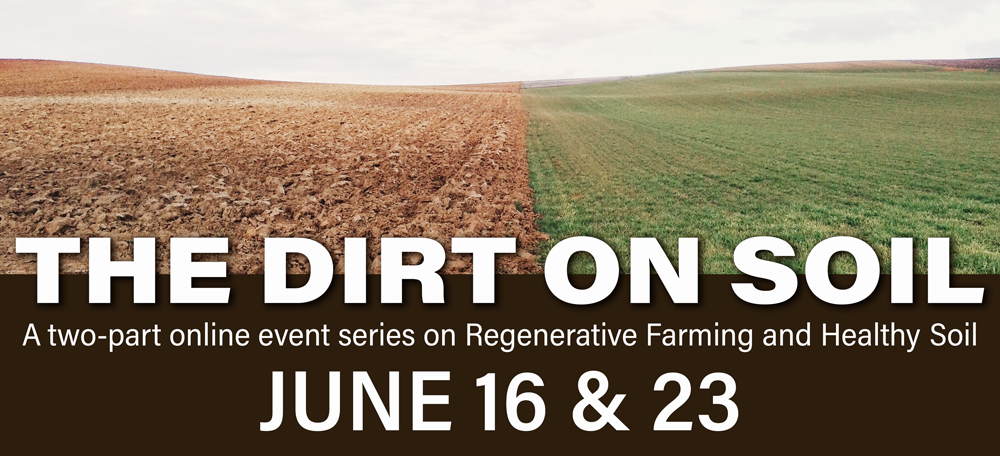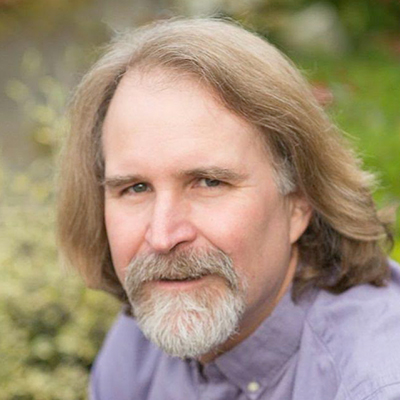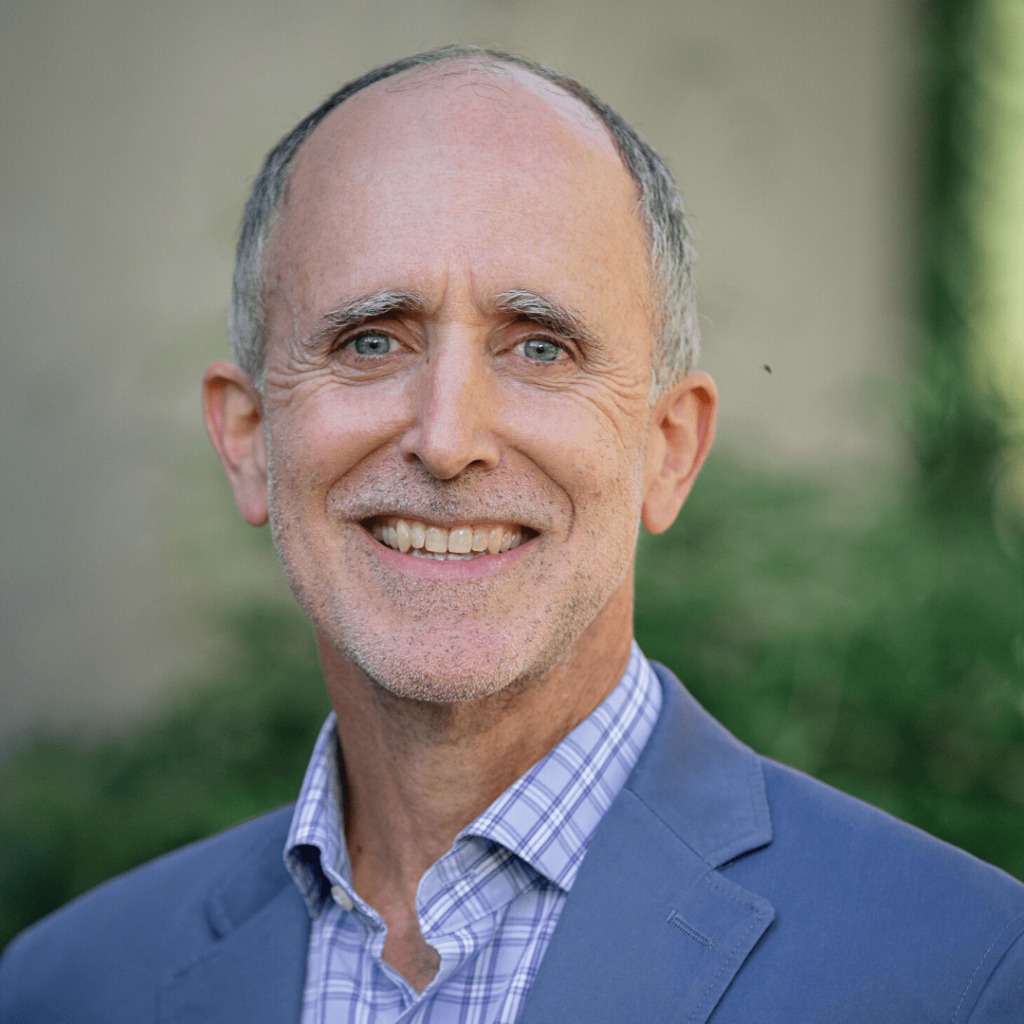
Healthy soil plays a vital role in the nutrient density of our food, can help prevent agricultural runoff and erosion, and has a direct impact on our changing climate. And yet, by ignoring what’s directly beneath our feet, we can expect to lose all of the world’s topsoil within a single generation and see a needless rise in the accumulation of greenhouse gasses in the atmosphere.
Join us for a special two-part online event series where we’ll explore why soil health matters, how it’s related to our worsening climate crisis, and what individuals and communities can do to protect it.

You only need to register once to attend on June 16 and June 23. Both events are free, but when you donate $25 or more you’ll also get links to recordings of both sessions as soon as they’re available.


David Montgomery is a geologist who studies landscape evolution and the effects of geological processes on ecological systems and human societies. He has written a number of popular science books, three of which won the Washington State Book Award. His recent book, Growing a Revolution: Bringing Our Soil Back to Life, focused on the potential for regenerative farming practice to reshape agriculture, and the forthcoming book co-authored with Anne Biklé, What Your Food Ate: How to Heal Our Land and Reclaim Our Health, explores the links between soil health and human health.

Dr. Bianca Moebius-Clune, PhD is the Director of AFT’s National Climate Initiative. Her program works collaboratively across partners and stakeholders to scale successful approaches, on-ramp new innovations, quantify outcomes, and reach new audiences for impact across landowners, partners, researchers, and policy makers to achieve resilient healthy soils and climate smart, regenerative agriculture and food systems.


Don Smith is a speaker, teacher, and student of regenerative agriculture and regenerative lifestyles. He applies his lifelong knowledge advising Kiss the Ground, teaching and supporting course development for various Kiss the Ground education initiatives, including the Soil Advocate Training course. His talks are engaging, inspiring, and filled with hands-on, viable solutions to the world’s largest problems.

Linda Bilsens Brolis is the Senior Project Manager for the Institute for Local Self-Reliance’s Composting Initiative. Her work focuses on advancing composting at the community level as a tool for reducing waste, regenerating soils, supporting local food production, and fighting climate chaos. Linda manages ILSR’s Neighborhood Soil Rebuilders Composter Training Program and led the development of ILSR’s new Community Composting 101 Online Certificate Course.

Reginaldo (Regi) Haslett-Marroquin is the Founder and Co-Executive Director of the Regenerative Agriculture Alliance, the Co-Owner and Co-Founder of Regeneration Farms, LLC – Tree-Range™ Chicken, and author of In the Shadow of Green Man: My Journey from Poverty and Hunger to Food Security and Hope. In 2018, Regi was awarded one of the prestigious lifetime Ashoka Fellowships for pioneering the Poultry Centered Regenerative Agriculture System.

REGISTER WITH A DONATION


Submit your questions for our panelists so we know what concepts you want to discuss, issues you want to address, and strategies you’d like to learn and use in your own communities.

Join our new Facebook group to share resources and connect with like-minded resilience builders who are passionate about healthy soil, regenerative agriculture, and sustainable food systems.

Share the event with family and friends on social media to spread awareness about the importance of healthy soil and regenerative agriculture.

Watch this helpful video from the Food and Agriculture Organization of the United Nations about how our soils can help combat climate change through sequestering CO2, and how humans are affecting this crucial process.
Post Carbon Institute’s “Take Action” series of online events is designed to influence participants to take action toward building resilience in their lives and communities. Thousands of people have attended our Take Action webinars that tackle tough issues such as improving access to healthy food, communicating effectively with skeptics about climate change, and maintaining mental health during trying times.
